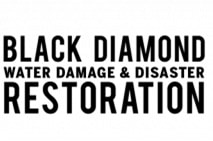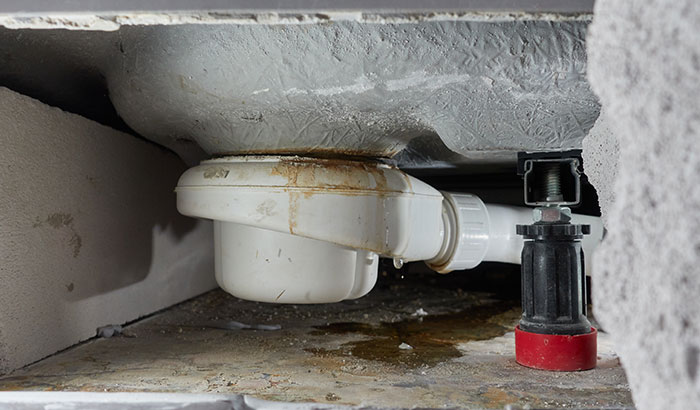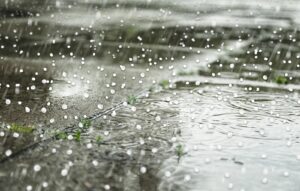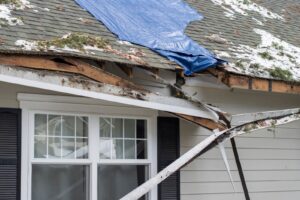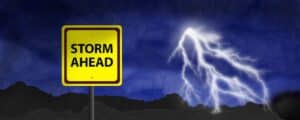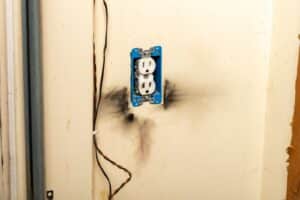Sewage damage can be a significant problem for businesses of all sizes, causing health hazards, structural damage, and disruption to business operations. To keep your business safe from sewage damage, it is essential to take appropriate preventative measures and have a plan to respond to any sewage-related incidents.
This article will discuss 19 things you can do to keep your business safe from sewage damage. They include:
- Conduct a risk assessment: The first step in protecting your business from sewage damage is to conduct a risk assessment. Identify areas of your business most vulnerable to sewage backups, such as basements, restrooms, and kitchens, and develop a plan to address any potential risks.
- Install backwater valves: Backwater valves prevent sewage from flowing into your business. They are typically installed in the sewer line, and they work by automatically closing when water or sewage flows back into your property.
- Install floor drains: These are essential to any commercial property’s plumbing system. They are designed to collect excess water and prevent flooding, which can be especially important in areas prone to sewage backups.
- Install sump pumps: Sump pumps are devices installed in basements or crawl spaces to remove excess water. They can be especially helpful in preventing sewage damage from backups caused by heavy rainfall or flooding.
- Properly dispose of grease and other materials: Grease, oils, and other materials can clog your pipes and cause sewage backups. Properly dispose of these materials by placing them in the trash or recycling bin.
- Educate employees: Educate your employees on proper waste disposal practices, including not flushing inappropriate materials down the toilet, such as feminine hygiene products, paper towels, and wipes.
- Regularly inspect your plumbing system: Regular inspections of your plumbing system can help identify any potential issues before they become more significant problems. Have a professional plumber inspect your pipes and drainage systems at least once a year.
- Clean and maintain your sewer lines: Regularly cleaning and maintaining your sewer lines can prevent sewage backups and keep your plumbing system working properly. Consider hiring a professional plumbing service for routine sewer line cleaning and maintenance.
- Check your insurance policy: Make sure that your insurance policy covers sewage backups and other types of water damage. If your policy does not include this coverage, consider purchasing additional insurance to protect your business.
- Install sewage alarms: Sewage alarms alert you when the sewage is backing up into your property. They can be beneficial in identifying sewage backups before they cause significant damage.
- Install a generator: A generator can be a valuable investment in case of power outages caused by heavy rain or flooding. A backup generator can help keep your business operational during a sewer-related emergency.
- Have an emergency response plan: Develop an emergency response plan outlining the steps you and your employees should take in case of a sewage-related incident. Include contact information for emergency services and professional plumbing services.
- Store important documents and equipment off the floor: If your business is located in an area prone to flooding or sewage backups, consider storing important documents and equipment off the floor. This can help protect them from water damage.
- Keep gutters and downspouts clean: Gutters and downspouts can become clogged with leaves and other debris, causing water to back up and potentially leading to sewage backups. Regularly cleaning your gutters and downspouts can prevent this from happening.
- Install a battery backup system: A battery backup system can help keep your sump pump or other critical systems running during a power outage.
- Use proper landscaping techniques: Proper landscaping can help prevent office sewage damage backups by directing water away from your property. Consider planting trees and shrubs.
- Work with a reputable plumbing company: Work with a reputable plumbing company to ensure that any plumbing work is done correctly and to code.
- Install a sewage ejector pump: If your business is in an area with a high water table, consider installing a sewage ejector pump to prevent backups.
- Install a check valve: Install a check valve on your main sewer line to prevent backups.
Preventing sewage damage is a crucial part of keeping your business safe. By following these 19 tips, you can minimize your risk of sewage damage and protect your business from costly repairs and downtime. Remember to work with professionals when necessary, and always have an emergency plan if the unexpected happens.
A closer look at the health hazards that are associated with sewage damage:
Sewage damage is terrible in any situation. An office setting is no different than any other; sewage in the building can make you very sick.
Here are some of the health effects that can result from exposure to sewage damage in an office building:
- Gastrointestinal Problems: Exposure to sewage can lead to gastrointestinal problems such as nausea, vomiting, diarrhea, and abdominal cramps. These symptoms are caused by the bacteria, viruses, and other pathogens present in sewage.
- Respiratory Problems: Sewage can also cause respiratory problems such as coughing, wheezing, and difficulty breathing. This is particularly true for individuals with pre-existing respiratory conditions like asthma.
- Skin Irritation: Contact with sewage can cause skin irritation, rashes, and other skin problems. This is particularly true for individuals with cuts, abrasions, or other open wounds on their skin.
- Eye and Ear Infections: Exposure to sewage can also cause eye and ear infections. These infections can cause redness, swelling, pain, and discharge.
- Allergic Reactions: Some individuals may experience allergic reactions to sewage bacteria and other pathogens. These reactions can range from mild to severe and may include symptoms such as hives, itching, and difficulty breathing.
- Disease Transmission: Sewage can contain disease-causing pathogens such as E. coli, Salmonella, and Hepatitis A. Exposure to these pathogens can lead to severe illnesses and diseases.
It is important to note that the health effects of sewage exposure can vary depending on the individual’s age, health status, and the amount and duration of exposure. In some cases, exposure to sewage can be fatal, particularly for individuals with weakened immune systems.
In addition to these health effects, sewage damage can also cause significant property damage and can lead to the growth of mold and other harmful microorganisms. It is important to take immediate action to address sewage damage in an office building to minimize health risks and prevent further damage.
This may include evacuating the building, shutting off water and power sources, and contacting a professional restoration company to clean and disinfect the affected areas.
Call Black Diamond Restoration Today
With over 20 years of experience, Black Diamond Restoration is the expert you need to restore your home from sewage damage, including sewage backups. Sewage damage restoration is often a biohazard that requires careful cleaning to keep it from spreading to other parts of your home or making you and your family sick.
Black Diamond Restoration provides 24/7 sewage, water, mold, fire, smoke, and storm damage restoration to the greater Salt Lake and Utah Valley areas. Call us at 801.797.2502 to schedule your service, or visit our website to learn more about us.
